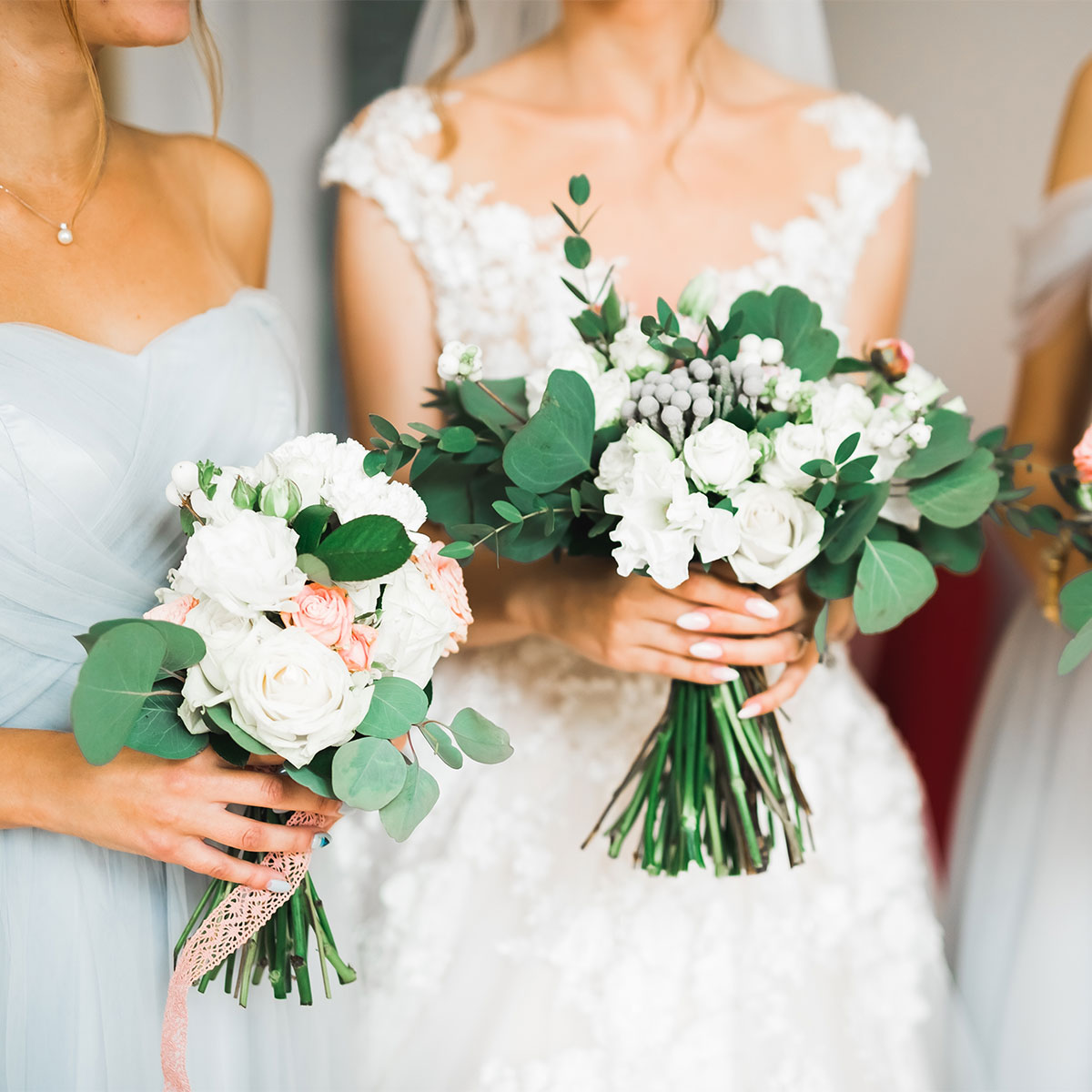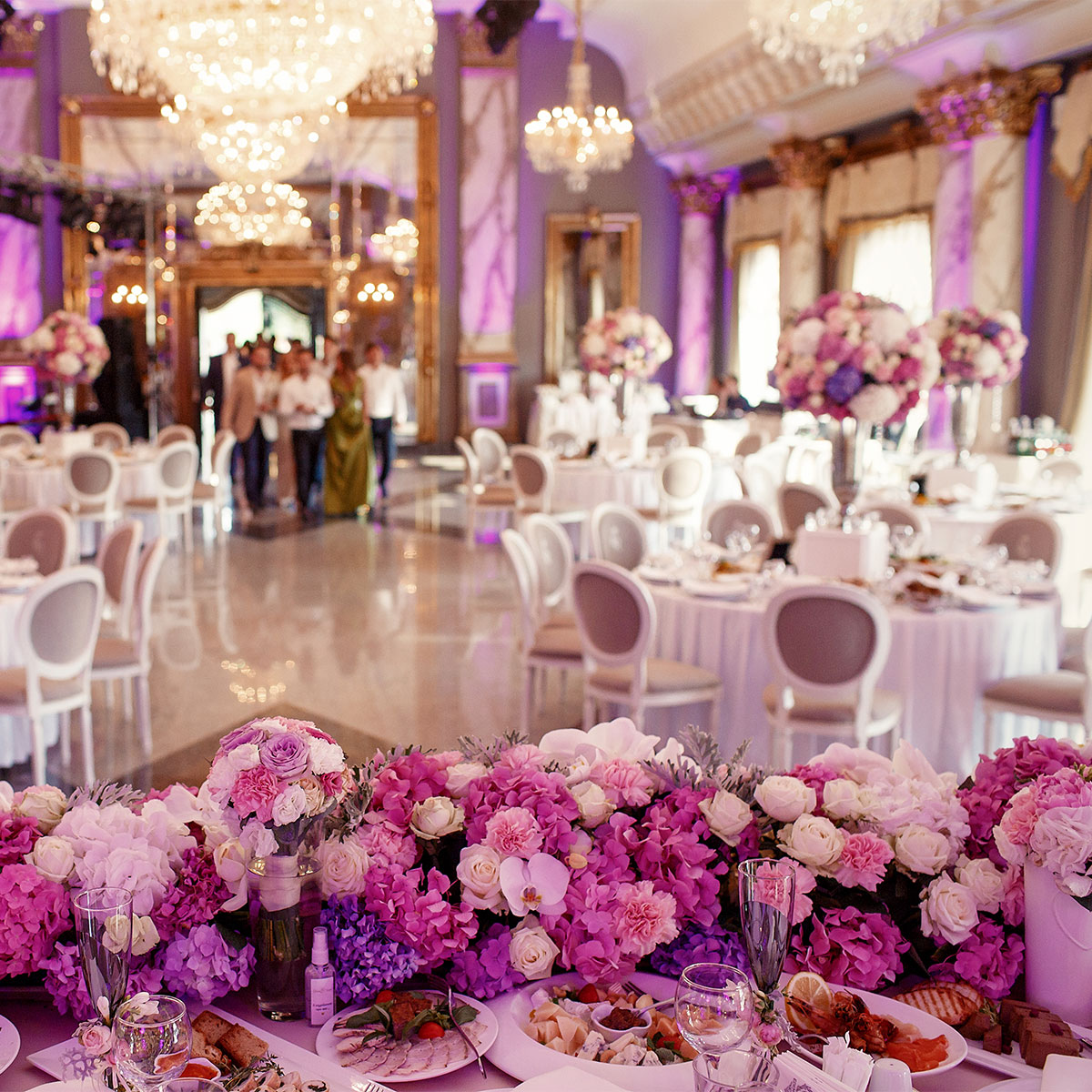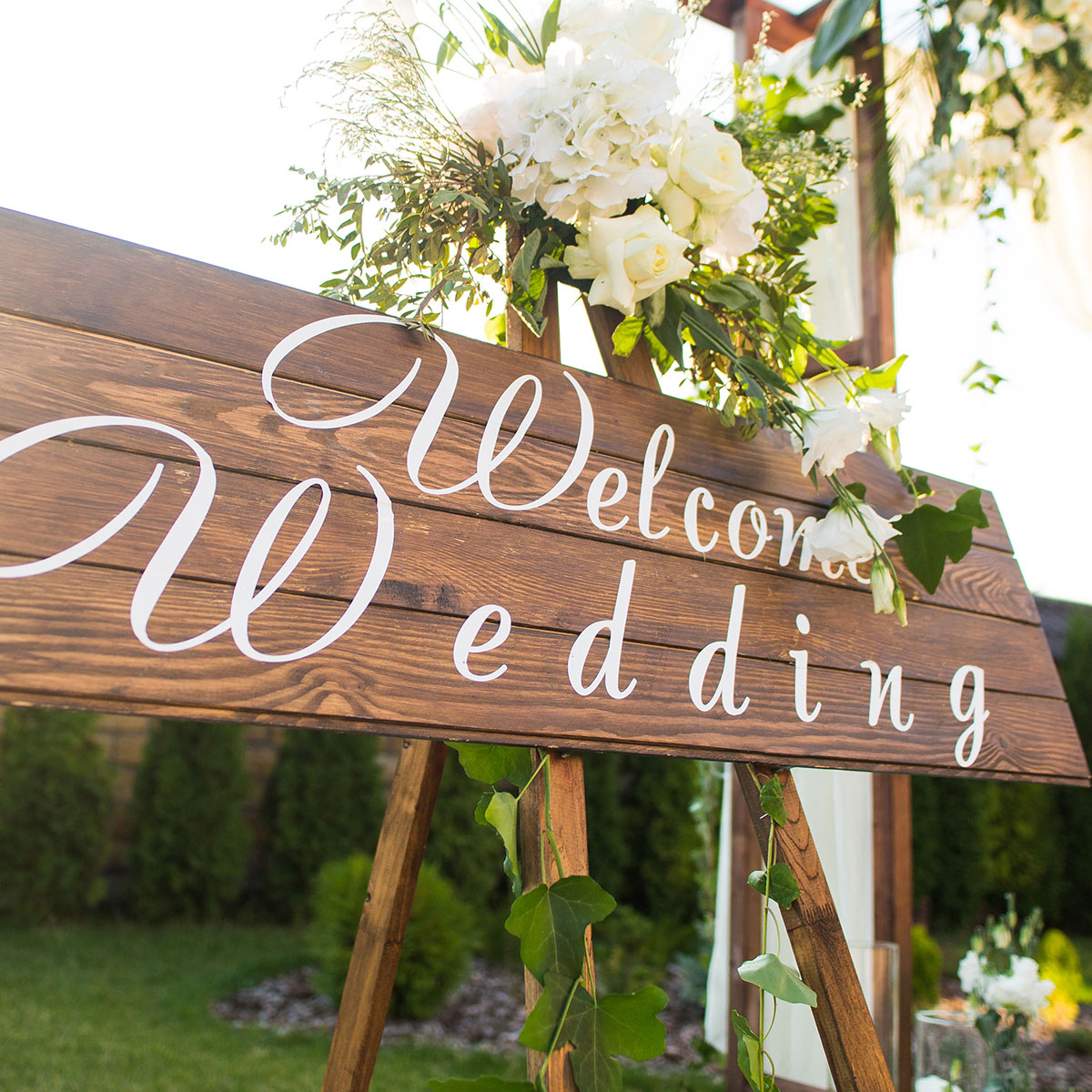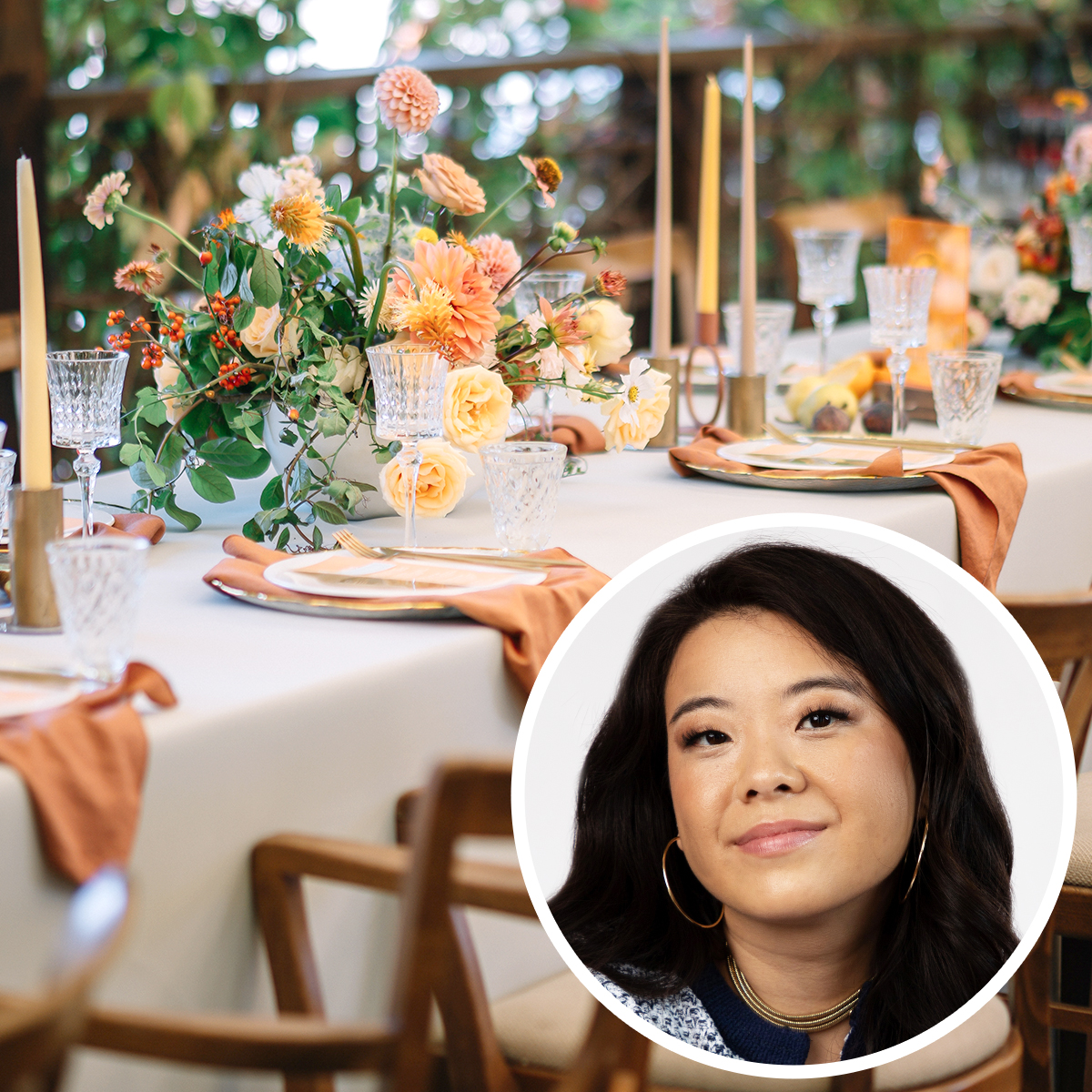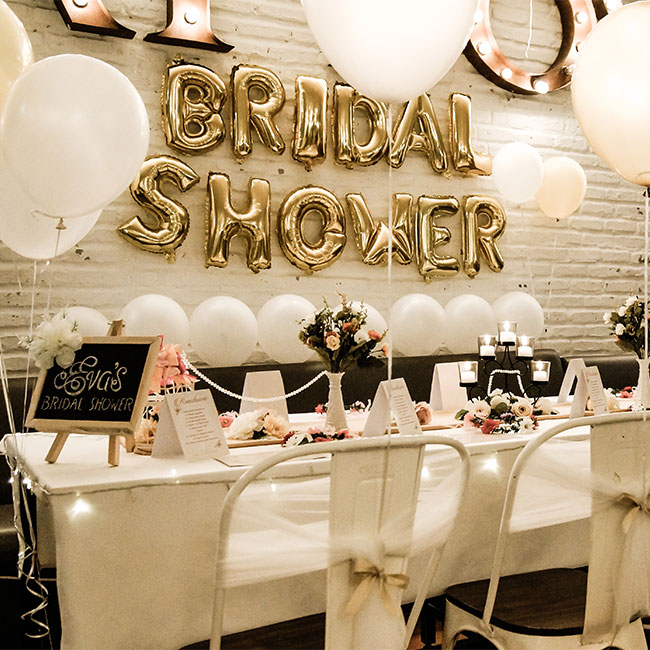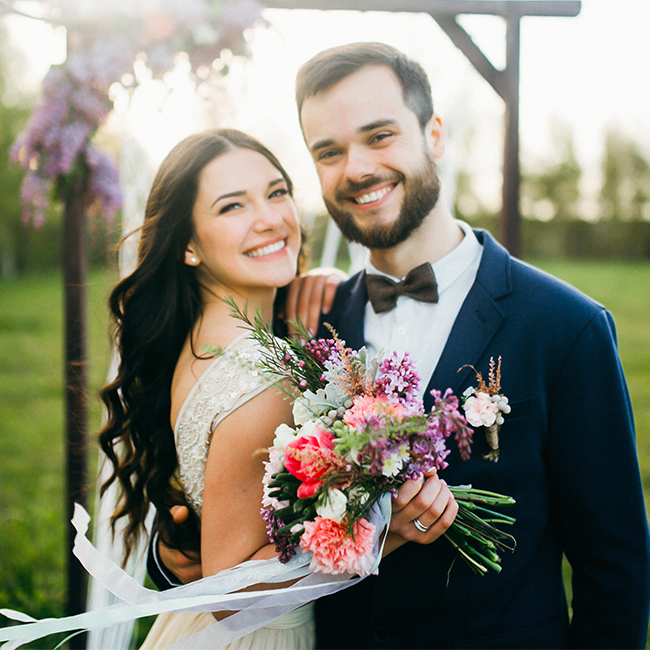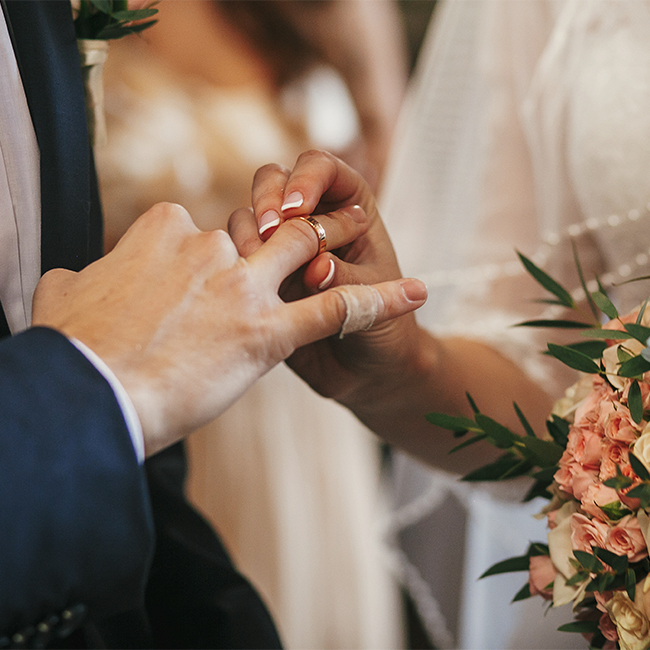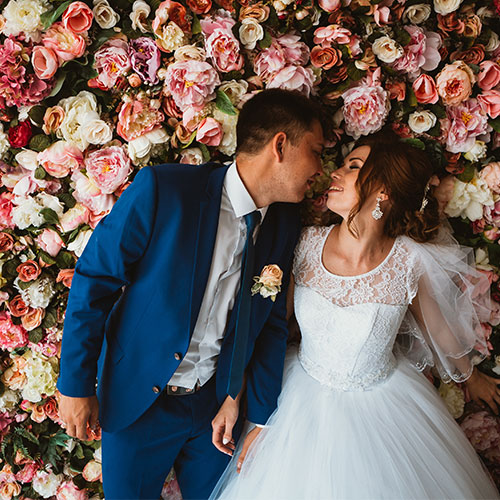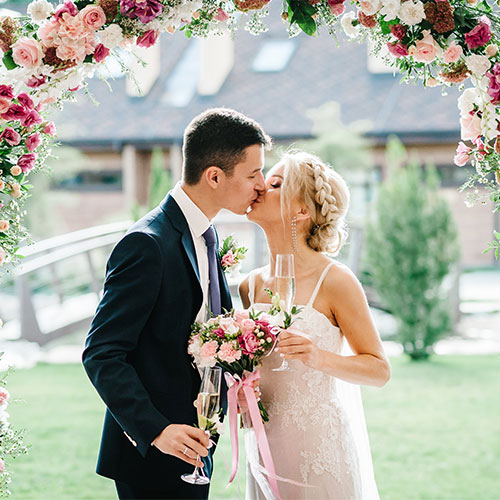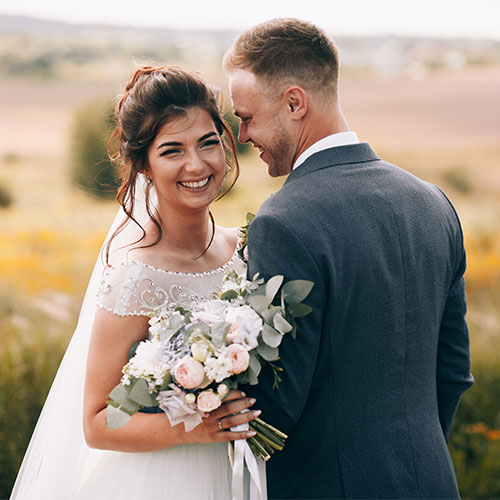This is an archived article and the information in the story may be outdated. Please check the time stamp on the story to see when it was updated last.

For every un-married woman with a wedding board on Pinterest, there is at least 1 recently engaged bride who is terrified of planning, with no clue where to start. Whether you’re too busy — or just not inspired — there are ways to hand off the planning so that all you have do is show up in the big white dress.
The first and easiest way to plan a wedding without doing too much work is to hire a wedding planner. On the surface this may seem like an extravagance, but planners come in lots of different styles and can tailor a package for your specific needs and budget. Maybe you can handle finding a photographer and picking out invitations, but have no idea how to pick decor. Most important, planners can get you deals and packages from the vendors that they work with all the time — deals that you wouldn’t be able to get on your own.
But the opportunity to outsource your wedding doesn’t stop with the planner. There are other professionals and services that can take the stress off your shoulders — some for a very small fee, or even free!
1. Choose the right level of planner: Not all planners were created equal. Determine the type of planner your event calls for:
Day-of wedding coordinator: For about $1,500, a day-of planner will help create a wedding timeline, confirm with vendors and handle the wedding day. Basically, they take care of all the set up details while you drink champagne and get your hair done.
Full service: A full-service planner will manage the entire process from start to finish. Some charge a flat rate, others a percentage of their services they arrange for you, usually 15-20%. If you are planning a large wedding you will do better on a percentage fee based package. With flat fee packages there are usually limitations as to how many hours the planner will work on it and any hours over that amount are charged at an hourly rate. Percentage based packages usually have an unlimited number of hours dedicated to the wedding. If it is a large wedding or one with lots of details, you will need your planner working as many hours as possible.
A la carte: If you need more of a coach than a full service planning, consider a wedding coordinator. They will usually charge by the hour and help you with everything from vendor contracts to running your rehearsal.
Tip: If you know you’re going to need a planner, start looking as early as possible. Most planners can’t handle more than 1 wedding per day, and popular dates and weekends book months in advance. A planner also shouldn’t have more than 2 weddings in a month. Know what questions to ask a potential wedding planner. Ask around for referrals first, or you can find one via wedding sites such as The Knot or through The Association of Bridal Consultants or The Association For Wedding Professionals.
As with anything, be sure to get the specifics of your wedding planner’s package in writing. Know that some couples tip a wedding planner about 15 percent for excellent service — but a gift certificate yo a spa or a restaurant is more common.
2. Think beyond the planner. Other professionals can help you execute the tasks on your to-do list that are not covered by a full-service wedding planner. If you have the budget, consider hiring a personal stylist to find your wedding gown, bridesmaid dresses and groomsmen suits. After providing your personal tastes and details of the event (season, location, etc) and stylist can narrow down the vast options, and even secure discounts. Depending on their level of experience, this can cost anywhere from $120-$100 per hour.
3. Maximize your vendors: Your florist may also be a fantastic source for centerpiece ideas and even lighting that goes way beyond flowers. Your caterer may be able to find a cake baker and oversee the order (including cake delivery, which can be tricky). Your band manager may be able to find musicians for other aspects of the wedding (a string quarter for the cocktail hour, a DJ for the after party, etc.). Don’t be afraid to ask your vendor for these additional services, and do your pricing research beforehand so you don’t get gouged.
4. Work with your venue: Many reception halls offer a wedding consultant to work with as part of your package, so get the most of their services. Pick their brains about vendors they have already worked with since those companies will already know the space and how to execute an event there.
5. Hire a personal assistant: There are a lot of menial chores that go along with planning a wedding: folding programs, stuffing gift bags, researching hotels and booking room blocks, etc. Instead of strong arming your friends and family, use personal assistant sites like Task Rabbit (for pre-screened workers) and Fancy Hands (which starts at $1/day!).
6. Utilize your bridal party: Some things you simply can’t do because you’re the bride, because they’re socially awkward or you can’t physically be there. Here’s where your bridal party comes in handy. Some of those jobs include calling guests who haven’t RSVP’d, creating an emergency kit for the day of the wedding and answering guests questions on the day-of. Tip: consider asking your most type-A, organized friend to be a part of the bridal party — even if she isn’t your bestie. She’ll make up for those slacker bridesmaids, and will be the first to volunteer to help you.
For more wedding planning tips, check our Wedding Dictionary for a full glossary of terms (from buttercream to basque!), 10 things to do before you start planning, and the best budgeting apps and tools.




